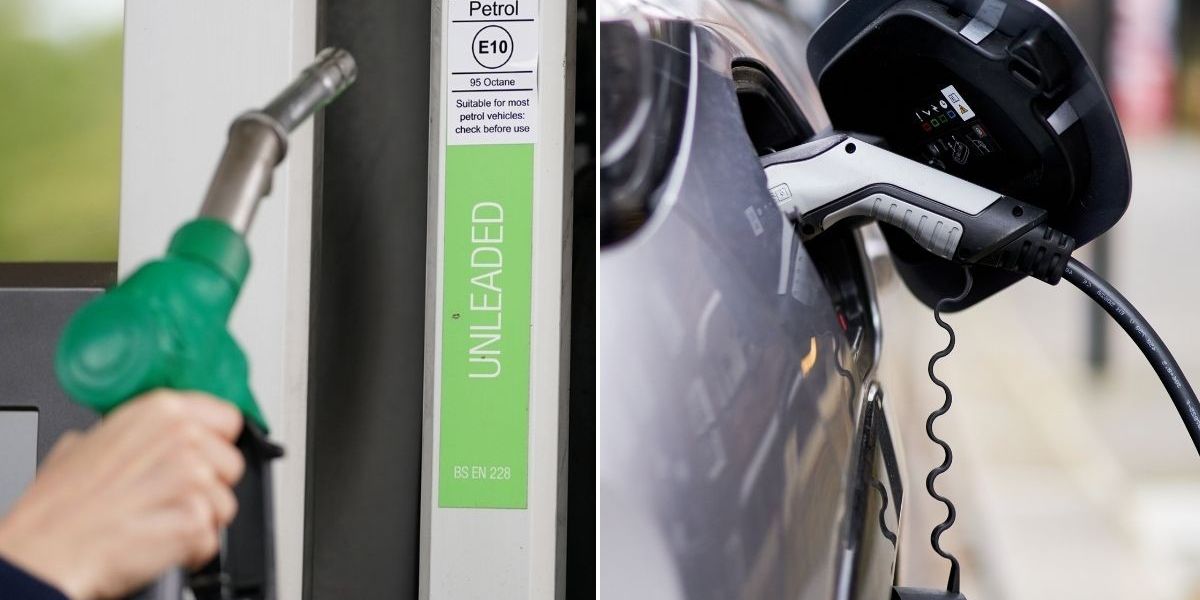Electric vehicle sales in the UK have surpassed the 20 per cent market share threshold for the third consecutive month, according to the latest reports.
New AutoMotive found in October, EVs claimed 20.8 per cent of the market, making them the fastest-growing fuel type, putting it on track to meet the zero emissions target.
The Society of Motor Manufacturers and Traders reported that battery electric vehicles were the only powertrain to record growth, with a 24.5 per cent increase, reaching a 20.7 per cent market share.
This surge in EV adoption comes despite an overall decline in the UK new car market, which fell by six per cent in October to 144,288 new registrations, equivalent to a £350million loss in turnover.
Do you have a story you’d like to share? Get in touch by emailing[email protected]
Diesel car sales have declined in the past few months
PA
European brands dominated the top EV sales positions in October with Volkswagen, Mercedes Benz, BMW, Peugeot, Audi, and Skoda all achieving between 18 per cent and 30 per cent of their total sales volume from electric vehicles.
Notably, Renault and Ford, which had previously struggled to meet EV sales targets, outperformed Tesla in October. Honda also showed strong performance, with 32 per cent of its total sales being electric.
Ben Nelmes, CEO of New AutoMotive, commented: “Electric car sales are going from strength to strength in the UK. This is the result of the efforts and investment made by forward-thinking carmakers, who are delivering cheaper, cleaner transport for all.”
The UK now offers more than 125 different BEV models to choose from, representing a 38 per cent increase over the last 10 months.
But despite growth in the EV market, petrol cars have experienced a rapid decline, with sales falling 14 per cent in the first 10 months of 2024 compared to the same period in 2023.
Petrol and diesel sales accounted for less than 40 per cent of overall market share for the second consecutive month.
However, rumours of carmakers holding back sales can be dispelled, as the overall car market has grown by 3.5 per cent during the same period.
The SMMT reported that petrol and diesel vehicle deliveries saw double-digit drops, down 14.2 per cent and 20.5 per cent respectively. Hybrid electric vehicles and plug-in hybrid electric vehicles also experienced declines, falling by 1.6 per cent and 3.2 per cent.
This shift in market dynamics underscores the growing preference for electric vehicles among UK consumers and the automotive industry’s ongoing transition towards cleaner transport options.
While nearly 300,000 new BEVs have reached UK roads in 2024, representing 18.1 per cent of the market, this falls short of the 22 per cent target for this year and the 28 per cent required by 2025 under the Vehicle Emissions Trading Scheme.
Mike Hawes, SMMT Chief Executive, stated: “Massive manufacturer investment in model choice and market support is helping make the UK the second largest EV market in Europe. That transition, however, must not perversely slow down the reduction of carbon emissions from road transport.”
The Budget extended existing business and fleet incentives for BEVs, but changes to Vehicle Excise Duty and company car tax may discourage low carbon vehicle purchases and fleet renewal, Hawes warned.
LATEST DEVELOPMENTS:
He added: “Without the Government support to match the manufacturers’ commitment, there must be an urgent review of the market’s performance and the regulatory mechanisms driving the transition.”
The industry called for bold consumer incentives and improvements in infrastructure to maintain the momentum of EV growth.

